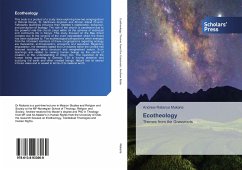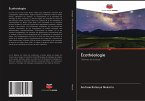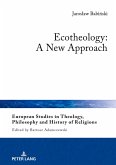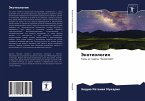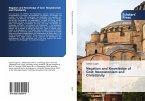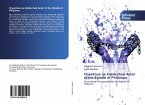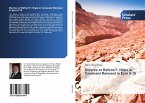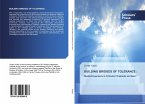This book is a product of a study done exploring how two congregations in Eldoret Kenya, St. Matthew's Anglican and African Inland Church, Fellowship teachings influence their member's relationship, behaviour, and perception of ecology. The role of the church is paramount due to the powerful role the church plays within all the spheres of individual and community life in Kenya. This study focused on the Mau forest complex due to the severity of the overt degradation which the forest has been subjected to. The ecotheological perspectives which emerged from the informant members of these congregations regarding ecology are theocentric, anthropocentric, ecocentric and secularist. Regarding degradation, the members stated that Christianity within the context has fostered teachings which devalued and marginalised nature. Such teachings are related to viewing human beings as the centre of creation, in the understanding of imago Dei. The injunction of the human being according to Genesis 1:28 is having dominion and subduing the earth and other created beings. Nature lost its sacred intrinsic value and is viewed in terms of its material worth.
Bitte wählen Sie Ihr Anliegen aus.
Rechnungen
Retourenschein anfordern
Bestellstatus
Storno

